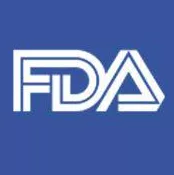Call for Abstracts: The 2017 Partnership for Food Safety Education Conference

A call for abstracts has been issued by The Partnership for Food Safety Education for the Advancing Food Safety Through Behavior Change--the sixth in a series of national consumer food safety education conferences. The event will take place in Washington, DC from January 25 through 27, 2017.
The conference is supported by the U.S. Food and Drug Administration, the U.S. Centers for Disease Control and Prevention, and the U.S. Department of Agriculture. The five principal themes of the event include:
- Measuring Behavior Change: Principles of evaluation and the development and testing of techniques, tools, and instruments for measuring behavior change in consumer food safety education programs. Design of evaluation components, techniques, and/or instruments best suited for evaluating food safety behavior change in high-risk audiences also are included.
- Influencing Behavior Through Physical Design: The role of facility, appliance and utensil design, physical space configuration, and/or workflow design (at home or at work) in fostering or encouraging food safety behavior change. Best practices for designing physical environments for promoting safe food handling behaviors and evaluating the success of these practices should be included. Examples of innovative design influencing behavior change in other related fields are also welcome.
- Targeting At-Risk Populations: Design, implementation, and evaluation of digital methods to encourage improvements in food handling behaviors and/or delivery of consumer food safety education. This category includes the use of social media, software, apps, etc.
- Behavior Change in the Digital Age: Education programs that have been successful in changing safe food handling behavior in a defined target audience. Sessions will focus on programs that work with specific populations and/or specific communities of consumers.
- Motivation and Risk Perception as Keys to Behavior Change: Perceptions of food safety risks among various population groups, techniques and best practices for determining perceived risks, and how these perceptions motivate consumers to make/not make desired behavior changes. Examples of motivators to encourage adoption of recommended food safety behaviors in work settings are also included in this category.
Abstracts for oral presentations are due by June 5, 2016. Presenters will be notified whether their abstract has been accepted by July 17, 2016.
Looking for quick answers on food safety topics?
Try Ask FSM, our new smart AI search tool.
Ask FSM →







